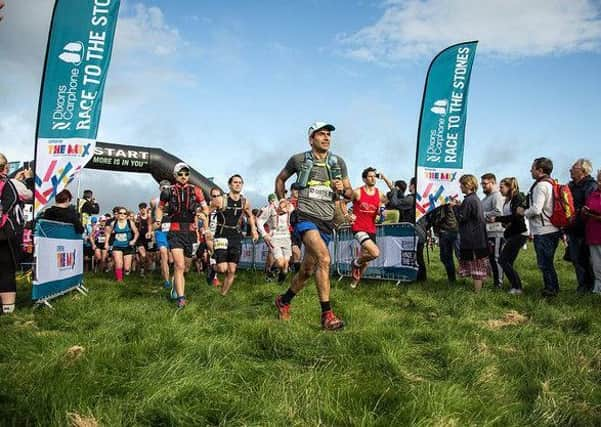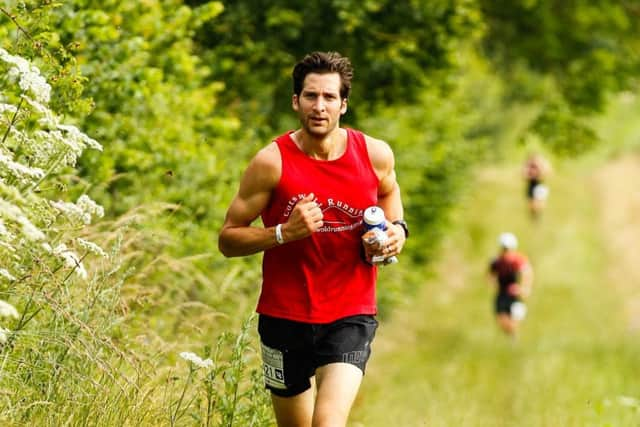How to survive an ultra marathon


Not now. The growing world of ultra running has left the once mighty 26.2 mile feat looking like a stroll in the park.
A growing brigade of endurance junkies are pushing the envelope with longer and more extreme events.
Advertisement
Hide AdAdvertisement
Hide AdThe likes of the 268-mile winter Spine Race ultra-marathon encompassing the entire length of the Pennine Way sets the bar very high at one end of the scale, while the eminently more accessible 31-mile Canalathon in Manchester offers newbies a chance to dip their toe in these once inaccessible waters.


Any race over the traditional marathon distance is classed as an ultra.
So, to find out why so many people are swapping fun runs for unfathomable distances, I’m taking the leap into ultra running by taking on the UK’s best endurance event (according to the 2016 Running Awards).
The Carphone Dixons Race to the Stones ultra will take me 100km (61 miles) from the Chilterns to the North Wessex Downs past mighty iron age forts, ancient monuments and through some of Britain’s most stunning landscapes to the towering Avebury Stone Circle. And all in two, long, arduous days on foot.
Advertisement
Hide AdAdvertisement
Hide AdIt’s organised by Threshold Sports - the gang behind my unbelievable Ride Across Britain cycling challenge last year - so I know I’ll be in good company.


But I’m in totally new territory so in preparation for the challenge, two endurance running champions have given me their top tips to survive my first ultra.
Rob Forbes, a 34-year-old father of three, won Carphone Dixons Race to the Stones last year and Sarah Morwood, 32, won the women’s race in 2015.
Here are their top tips for survival:
1) Believe in yourself.
Anyone can run an ultra, Rob says. Training simply makes you faster and reduces the pain.
Advertisement
Hide AdAdvertisement
Hide AdThe best way to get motivated is to book a race and then build up the mileage slowly, mixing up terrain and footwear to minimise risk of injury.
Never look for excuses to get out of a run – you never regret going.
2) Don’t over eat.
This isn’t a great one for me, but Rob says the best ultra runners don’t eat much because their bodies are so efficient at burning their on-board supplies.
In training, practice running without much and manage intake carefully on the day, he says.
3) Relish the exhaustion.
Advertisement
Hide AdAdvertisement
Hide AdRob says ultras give you a sense of exhaustion and satisfaction that can’t be achieved over shorter distances.
Not only do they take you to your mental and physical limits, but you share the experience with all the other runners because the camaraderie is second to none. The highs and lows are unforgettable and the scenery is generally stunning.
4) Treat yourself.
During the run, have a few treats to look forward to and milestone targets along the way.
Rob says he holds off on caffeine until the latter parts of the race, which gives him a massive lift. Getting out the iPod and putting on some tunes is also psychologically energising.
Advertisement
Hide AdAdvertisement
Hide AdSarah even knows one runner who always has a Big Mac waiting for him at 75 mile mark during 100 miles races!
5) It’s all psychological.
So much of an ultra is psychological rather than physical. Sarah says the times she hasn’t finished races have usually been because her head gave up rather than her body.
There are always highs and lows during a race but at the end you only ever remember the highs.
6) Make friends.
Because you are generally running slower than you might over shorter distances, you’re able to chat to your fellow runners making ultras more sociable than many other races.
Sarah says that’s what makes them such great experiences.
Advertisement
Hide AdAdvertisement
Hide AdShe said during the first 100km race she did, she ended up running with four guys she’d never met, and by the end they’d laughed, cried, farted and peed in bushes in front of each other.
It was a very liberating feeling, she says.
7) Don’t get lost.
Choose a race with a fully signposted route. Several races involve navigation and some courses are completely unmarked.
That’s fine if you’re confident with a map, Sarah says, but if you’re new to ultra running and experiencing the distance for the first time, it’s nice not to have to worry about getting lost on top of everything else.